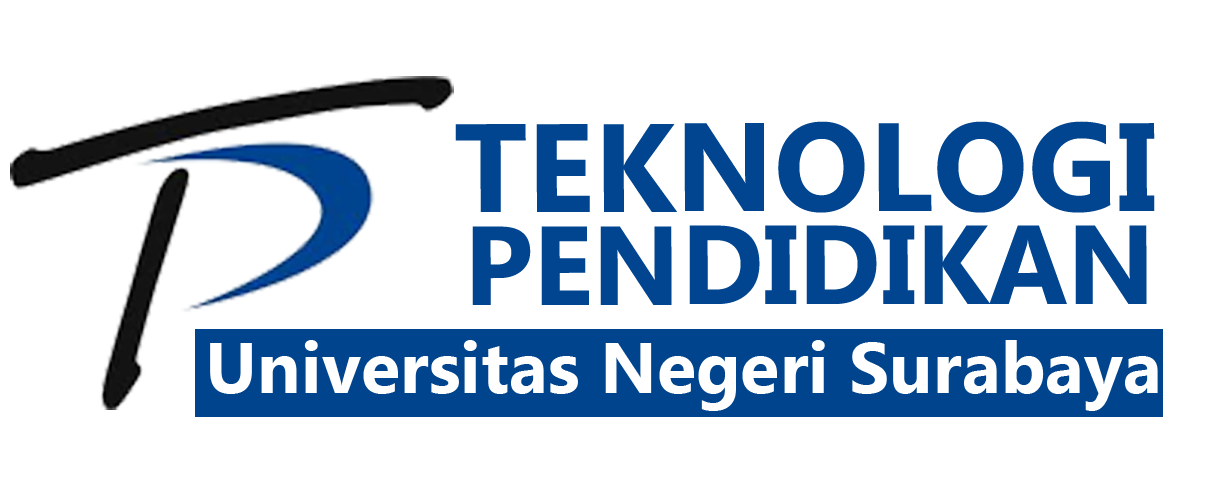Advanced Educational Psychology
Course infomation

Examining critically the relationship between learning theories and learning, the use of learning media, and educational technology. This ability includes (1) making decisions and solving problems wisely, (2) applying knowledge, experience and thinking skills in a more practical manner both inside and outside the organization/school, (3) producing creative and innovative ideas or creations, ( 4) overcoming rushed, vague and narrow ways of thinking, (5) improving cognitive and affective aspects, and (6) being open in accepting and giving opinions, making judgments based on reasons and evidence, and daring to give views and criticism
- 1. Pablo Briñol and Kenneth G. DeMarree.2012. Social metacognition. Taylor & Francis Group, LLC; NY
- 2. Schunk, Dale H. 2012. Learning theories : an educational perspective.Pearson:NY
- 3. Levin , Daniel T. 2004. Thinking and seeing : visual metacognition in adults and children. Massachusetts Institute of Technology; Massachusetts
- 4. Peña-Ayala, Alejandro. 2015. Metacognition: Fundaments, Applications, and Trends: A Profile of the Current State-Of-The-Art. Springer; NY
- 5. Larkin, Shirley. 2010. Metacognition in young children. Routledge; NY
- 6. Azevedo, Roger & Aleven, Vincent. 2013. International Handbook of Metacognition and Learning Technologies. Springer; NY
- 7. Slavin, R. E. 2017.Education Psychology: Teori and Practice.New York: Pearson
- 8. Blummer, B., & Kenton, J. M. (2015).Improving Student Information Search A Metacognitive Approach.India: Chandos Publishing.
- 9. Chinien, C. A., & Boutin, F. (1993). Cognitive Style FD/I: An Important Learner Characteristic for Educational Technologists.Journal of Educational Technology Systems, 21, 303-311.
- 10. Cormier, W., & Cormier, L. (1985).Interviewing Strategies For Helpers: Fundamental Skill Cognitive Behavioral Interventions.Monterey, California: Brooks/Cole Publishing Company.
- 11. Faschingbauer, T. R., Moore, C. D., & Stone, A. (1978). Cognitive Style, Dogmatism, and Creativity: Some Implications regarding Cognitive Development.Psychological Reports, 775-804.
- 12. Kozhevnikov, M. (2007). Cognitive Styles in the Context of Modern Psychology: Toward a Integrated Framework of Cognitive Style.Psychological Bulletin, 464–481.
- 13. Lajoie, S. P. (2008). Metacognition, Self Regulation, and Self-regulated Learning: A Rose by any other Name?Educ Psychol Rev, 469–475.
- 14. Riding, R., & Cheema, I. (1991). Cognitive Styles—an overview and integration.Educational Psychology, 193-214.
- 15. Santrock, J. W. (2010).Educational Psychology.New York: McGraw-Hill.
- 16. Scunk, D. H. (1985). Self Efficacy and Classroom Learning.Psychology in the Schools, 208-223.
- 17. Slavin, R. E. (2006).Education Psychology: Teori and Practice.New York: Pearson.
- 18. Thomas, P. R., & McKay, J. B. (2010). Cognitive styles and instructional design in university learning.Learning and Individual Differences, 197–202.
Open RPS PDF











